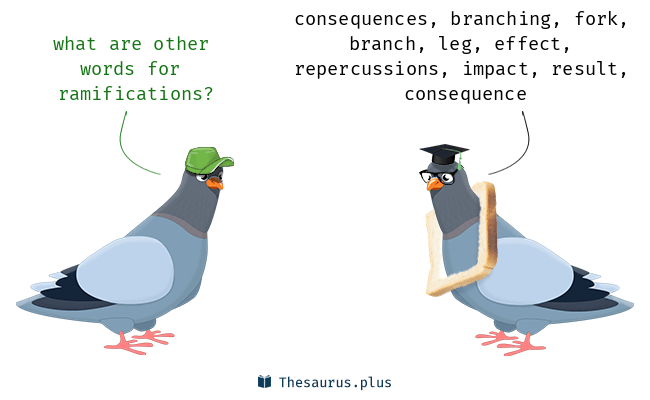Uhm is a word used in textimg
Uhm
In texting, uhm is a word you use when you don’t know what you say, or when you want to show you’re thinking about something.
Example:
Are you coming to the party?
Uhm... I'm not sure yet
Why do we use uhm when we text?
When you’re unsure of the answer to a question, you will most likely make an “uhm” sound, and that is how you type it!
"Expound" is a verb that means to explain or elaborate on something in detail.
Here is a more detailed answer:
"Expound" is a verb that means to explain or elaborate on something in detail. It is often used when someone wants to provide a more thorough or complete explanation of a concept, idea, or topic. The word is often used in a formal or academic setting, and is often used to describe the act of providing a detailed or in-depth explanation of something. It can also be used to describe the act of presenting or arguing in favor of a particular point of view.
Here are a few usage examples to help you better understand this verb:
"The professor expounded on the theory for an hour, providing numerous examples and illustrations."
"He expounded on the benefits of meditation, explaining how it can reduce stress and improve focus."
"The lawyer expounded on the legal arguments in favor of her client's case."
"She expounded on the history of the company, detailing its growth and success over the years."
Here are a few multiple choice questions to help you practice using this verb:
What does the verb "expound" mean?
a) To explain or elaborate on something in detail
b) To summarize or condense something
c) To obscure or confuse something
d) Both a) and c)
Answer: a) To explain or elaborate on something in detail
In which context is the verb "expound" typically used?
a) In a casual or informal setting
b) In a formal or academic setting
c) In a historical or cultural setting
d) All of the above
Answer: b) In a formal or academic setting
Which of the following is NOT a characteristic of the verb "expound"?
a) Used to describe the act of providing a detailed or in-depth explanation of something
b) Used to describe the act of presenting or arguing in favor of a particular point of view
c) Used to describe the act of obscuring or confusing something
d) Used to describe the act of summarizing or condensing something
Answer: d) Used to describe the act of summarizing or condensing something
Can the verb "expound" be used to describe the act of presenting or arguing in favor of a particular point of view?
a) Yes
b) No
Answer: a) Yes
Conclusion:
"Expound" is a verb that means to explain or elaborate on something in detail. It is often used when someone wants to provide a more thorough or complete explanation of a concept, idea, or topic. The word is often used in a formal or academic setting, and is often used to describe the act of providing a detailed or in-depth explanation of something. It can also be used to describe the act of presenting or arguing in favor of a particular point of view.
What does 'vax' mean?
Vax (=Noun) is the Abbreviation or shortened form of the words vaccine or vaccination (also meaning- inoculation or immunization).
Vax is countable and uncountable the plural is vaxes or vaxxes
Vax (=Verb) would be to vaccinate (a person) against a disease eg Covid-19. Plural is Vaxed
Vax can either be spelled as:
Vax (the more common spelling) or Vaxx
Examples:
During Covid-19 citizens were encouraged to get their vax to avoid the spread of the virus.
Your card will be stamped once you've taken the vax.
Conclusion:
Nowadays to avoid many serious childhood illnesses parents are encouraged to take their children for their vax once due.
Abbreviations are easy to use and vax has become a lot more popular in recent years.
Stupid Is As Stupid Does - What Does It Mean?
Stupid Is As Stupid Does is a proverb meaning that one's intelligence may be judged by one's actions.
Let's Delve Deeper
The phrase "Stupid Is As Stupid Does" is a phrase you may often see in writing or hear in conversation. When used it refers to how one's action may be an indicator of one's intelligence or lack thereof.
It all boils down to you are only as smart as your actions.
The phrase "Stupid Is As Stupid Does" became popular in 1994 with the release of the movie Forest Gump. It has been used widely ever since.
Looking At A Practical Example
A statement made in a local newspaper about a drunk driver causing a fatal accident, one might comment as follows:
"Of course the drunk fool caused an accident, Stupid Is As Stupid Does"
This means you are saying that the driver was only as smart as his actions. Foolish Actions = Foolish Intellegence
Final Thought
Using the phrase Stupid Is As Stipud Does must be done so with care. People may take offence if the term is used within a inappropriate context.
On God - What Does The Term Mean?
On God - simply means that a person is telling the truth.
The phrase is similar to "I swear to God".
People can use the phrase in speech or conversation to enforce that they are telling the truth.
Looking Deeper At The Term
On God is a shortened version of "I swear on God", and its use on social media platforms has been popularised.
On social media platforms and texting the term On God is often further abbreviated to ONG.
Let's Look At An Example
Looking at an example of On God within a sentence:
"On God, I just saw three black cats cross the road."
*Question 1: Can you think of a synonym for On God?
*Answer in the Final Thought section
Final Thought
There are in most cases more appropriate ways to convey one's honesty. Look at the answer below for some ideas on synonyms for On God.
*Answer 1: For Real or No Lie
"TDY" is an abbreviation that stands for "temporary duty."
Here is a more detailed answer:
"TDY" is an abbreviation that stands for "temporary duty." It is often used in the military or other government agencies to refer to a period of time during which an individual is assigned to work at a location away from their permanent duty station. Temporary duty assignments can be for a variety of purposes, such as training, special assignments, or deployments.
Here are a few usage examples to help you better understand this expression:
"I'm going to be on TDY for the next two weeks."
"I just got back from a TDY in Afghanistan."
"I'm going to be on TDY in New York next month."
"I'm going to be on TDY at the embassy in Paris."
Here are a few multiple choice questions to help you practice using this expression:
What does the abbreviation "TDY" stand for?
a) Temporary duty
b) Temporary deployment
c) Temporary assignment
d) All of the above
Answer: a) Temporary duty
In which context is the abbreviation "TDY" typically used?
a) Military or government agencies
b) Education or academia
c) Healthcare or medicine
d) Business or finance
Answer: a) Military or government agencies
Which of the following is NOT a reason why someone might go on TDY?
a) Training b) Special assignments
c) Deployments d) Vacation
Answer: d) Vacation
Is TDY typically a long-term or short-term assignment?
a) Long-term
b) Short-term
Answer: b) short-term
Conclusion:
"TDY" is an abbreviation that stands for "temporary duty." It is often used in the military or other government agencies to refer to a period of time during which an individual is assigned to work at a location away from their permanent duty station for a variety of purposes, such as training, special assignments, or deployments. TDY assignments are typically short-term.
What does "tacky" mean?
This is an adjective used in 2 different ways.
Tacky: refers to adhesive
Example: The wood has a tacky feeling
->This means that the wood feels "sticky"
Synonyms: gluey, sticky, gummy, clingy
2nd Tacky: refers to something cheap, not having good taste.
Example: The woman wears a tacky outfit.
->This means that the woman's dress was styleless.
Synonyms: cheesy, trashy, unfashionable, inelegant
Can you make a sentence using the word "tacky"?
Send me your sentence in the Amazing Talker chat box!
What does "ramifications" mean?
Ramifications are the consequences (or the results) of an action. Ramifications can be good or bad, depending on the action in question.

For example,
If you don't brush your teeth, the ramifications could be that you develop cavities and have to see the dentist for treatment.
Or, if you don't do your homework, the ramifications might be that you fail your class or receive bad marks.
On the other hand ...
The ramifications of practicing good dental health may be that you have a bright and lovely smile and almost never need to see a dentist.
And the ramifications of always completing your homework might be that you always receive outstanding marks in class.
In other words,
Ramifications are the results of something you do or don't do. It is always important to consider the possible ramifications of your actions before doing anything in order to avoid bad consequences.
What Does The Word Nuanced Mean?
Nuanced means to have or be characterized by subtle and often complex qualities.
Let's Look Deeper Into The Word
If someone or something is nuanced the person or object has multiple different characteristics that can't easily be categorized and aren't stereotypical.
To further explain nuanced let's look at characters in a movie:
In most movies, the bad guys are bad and the good guys are good. They all fit into their categories and it is good versus evil.
But some characters are not so easily categorized.
Let's say a movie character is selfish but brave; has a bad temper but is also caring, we say this character is nuanced because he does not fit into a specific category.
Examples & Practice
Another example can be flavor:
When biting into a steak, you might expect it to taste one way, but if there are many different flavors acting together in an unexpected way, you can say the steak's flavors are nuanced, because of the complexity of the flavor.
*Question 1: Can you think of what the opposite of nuanced is?
*Question 2: Can you think of a synonym for nuanced?
*Answers in the Final Thoughts section
Final Thought
Nuanced is considered to be one of the more complex words to use effectively within a sentence and everyday conversation. However with practice, one can learn how and when to use the word effectively.
*Answer 1: Indifferent, mediocre, middling, run-of-the-mill
*Answer 2: Subtlety, refinement, distinction, hint
This word can be used as a greeting or even to ask for an update on a particular situation. In some cultures, it is simply used as a casual way to begin a chat or conversation with someone.
Defining Wagwan
Wagwan is, by origin, a Jamaican-English expression used to ask "what's up?" or "what's going on?"
Examples
If two pals meet up after not having seen each other for awhile, one of them might greet the other by asking, "Wagwan?" to see what their friend has been doing since the last time they met.
Or, if someone is confused about something they see or hear happening, they might ask someone, "Wagwan with that?"
So ... what exactly are you saying, teacher?
Wagwan is basically a slang term or expression that is used to greet a friend, to ask for an explanation about something, or simply to ask, "what's going on?"
"Top of the morning" is an expression used to greet someone in the morning.
Here is a more detailed answer:
"Top of the morning" is an expression used to greet someone in the morning. It is typically used as a casual or informal greeting, and is often associated with Irish culture. The phrase is derived from the Irish greeting "Céad míle fáilte," which means "a hundred thousand welcomes." It is typically used in the morning, but can also be used at other times of the day to convey a sense of cheer or goodwill.
Here are a few usage examples to help you better understand this expression:
"Top of the morning to you, my friend!"
"I hope you're having a good top of the morning!"
"I always look forward to starting my day with a cheerful top of the morning from my coworkers."
"I love the way the phrase 'top of the morning' sounds – it's so cheerful and friendly."
Here are a few multiple choice questions to help you practice using this expression:
What is the expression "top of the morning" used for?
a) To greet someone in the morning
b) To say goodbye in the morning
c) To ask someone how they are doing in the morning
d) All of the above
Answer: a) To greet someone in the morning
In which context is the expression "top of the morning" typically used?
a) As a casual or informal greeting
b) As a formal or formal greeting
c) As a way of saying goodbye
d) As a way of asking someone how they are doing
Answer: a) As a casual or informal greeting
Which of the following is NOT a characteristic of the expression "top of the morning"?
a) Associated with Irish culture
b) Derived from the Irish greeting "Céad míle fáilte"
c) Used in the morning, but can also be used at other times of the day
d) Used to convey a sense of cheer or goodwill
Answer: b) Derived from the Irish greeting "Céad míle fáilte"
Can the expression "top of the morning" be used at any time of the day to convey a sense of cheer or goodwill?
a) Yes
b) No
Answer: a) Yes
Conclusion:
"Top of the morning" is an expression used to greet someone in the morning. It is typically used as a casual or informal greeting, and is often associated with Irish culture. The phrase is typically used in the morning, but can also be used at other times of the day to convey a sense of cheer or goodwill.
Tit For Tat, What Does It Mean?
Tit For Tat is an idiom that means to intentionally punish someone because they have done something annoying or unpleasant to you.
Looking Deeper Into The Meaning
When someone does something to you that is particularly annoying and you do the same thing to them, it is called Tit For Tat.
Examples
Let's look at two examples using the phrase Tit For Tat:
Example 1:
"I noticed she did not send me a Christmas card, I think it is tit for tat because I forgot her birthday last year.
Example 2:
"She would not continue to fight, she rejected returning the tit for tat.
*Question 1: After learning more about the meaning of tit for tat, can you think of a synonym for tit for tat?
*Answer in the Final Thought section
Final Thought
Idioms are colorful descriptions used to amplify messages and draw readers in to awaken their senses. When used appropriately idioms can make sentences more descriptive.
Answer 1: Eye For An Eye, Don't Get Mad Get Even & Two Can Play That Game
Vato" is a Spanish term that means "guy" or "dude."
Here is a more detailed answer:
"Vato" is a Spanish term that means "guy" or "dude." It is often used as a slang term to refer to a man or boy, particularly among Spanish-speaking communities in the United States. The term is often used in casual or informal settings, and can be used as a term of endearment or as a way to address someone informally.
Here are a few usage examples to help you better understand this expression:
"What's up, vato?"
"That vato is crazy."
"How are you, vato?"
"That vato is my best friend."
Here are a few multiple choice questions to help you practice using this expression:
What does the term "vato" mean?
a) Guy or dude
b) Man or boy
c) Friend or buddy
d) All of the above
Answer: a) Guy or dude
In which language is the term "vato" used?
a) English
b) Spanish
c) French
d) Italian
Answer: b) Spanish
Which of the following is NOT an appropriate use of the term "vato"?
a) As a slang term to refer to a man or boy
b) As a term of endearment
c) As a way to address someone informally
d) As a formal or respectful way to address someone
Answer: d) As a formal or respectful way to address someone
Conclusion:
"Vato" is a Spanish term that means "guy" or "dude." It is often used as a slang term to refer to a man or boy, particularly among Spanish-speaking communities in the United States. The term is often used in casual or informal settings, and can be used as a term of endearment or as a way to address someone informally.
What does ring around the rosie mean?
variations less common - ring-around-a- rosy or ring-a-rosy
🔆This is a single line taken from a rhyme game - meaning circle around the rosie or rose tree
🔆A children's singing game in which the players sing this rhyme while dancing with hands joined in a circle / ring, at the signal (hearing the word 'down' in the rhyme below) they drop, fall down to the ground and let go of each others hands. 🤩
🔆Another interpretation of the rhyme is that it originally represented Plague, death and disaster in history. Where "ring around the rosie" describes the symptoms such as the red ring rashes or red inflammation that occurred on the skin during this time.
the full rhyme is as follows:
Ring Around the Rosie
Pockets full of Posies (Posies = bunch / small bouquets of flowers)
Ashes, Ashes OR A-tishoo! A-tishoo!
We All Fall Down
Ring around the Rosie
Amazing to think that childhood memories of fun, happy times, games and rhymes🪅🎶🎈 have a much deeper meaning, originating from suffering and sad parts of history. ☠️
What Does Ft In Text Mean?
On social media platforms, ft stand for FaceTime.
Meaning to video call someone.
Let's Look Deeper Into The Phrase
FaceTime is a videotelephony (video-calling) application developed by Apple and was initially released in June 2010.
Since then, most major social media platforms have developed their own video-calling applications.
An Example & Practice
When someone sends you: "Do you want to ft?"
They are asking you: "Do you want to video chat right now?"
Practice this phrase on a social media platform and ask five of your close friends if they would like to "ft". See how many (or few) of them know what it means.
Final Thought
Acronyms such as "ft" shorten text messages over social media platforms, however, to avoid confusion, always try to use full sentences.
It avoids misunderstandings and keeps your vocabulary and writing skills sharp.
"Goblin mode" is a term that is often used to describe a state of extreme anger, frustration, or aggression.
Here is a more detailed answer:
"Goblin mode" is a term that is often used to describe a state of extreme anger, frustration, or aggression. It is often used in a casual or informal setting, and is often used to describe someone who is behaving in a way that is irrational, destructive, or volatile. The term is often used metaphorically to describe a person's emotional state, and is sometimes used to exaggerate or exaggerate the intensity of someone's anger or frustration.
Here are a few usage examples to help you better understand this expression:
"I don't want to upset him, he's been in goblin mode all week."
"I can't believe she went into goblin mode over such a small mistake."
"I'd stay away from him if I were you, he's in goblin mode today."
"I don't know what's gotten into him, he's been in goblin mode for days."
Here are a few multiple choice questions to help you practice using this expression:
What does the term "goblin mode" mean?
a) A state of extreme anger, frustration, or aggression
b) A state of calm, serenity, or relaxation
c) A state of confusion, uncertainty, or indecision
d) None of the above
Answer: a) A state of extreme anger, frustration, or aggression
In which context is the term "goblin mode" typically used?
a) To describe a state of calm, serenity, or relaxation
b) To describe a state of confusion, uncertainty, or indecision
c) To describe a state of extreme anger, frustration, or aggression d) To describe a state of boredom, apathy, or disinterest
Answer: c) To describe a state of extreme anger, frustration, or aggression
Which of the following is NOT a characteristic of the term "goblin mode"?
a) Used to describe someone who is behaving in a way that is irrational, destructive, or volatile
b) Used to describe someone's emotional state
c) Used in a casual or informal setting
d) Used to exaggerate or exaggerate the intensity of someone's anger or frustration
Answer: a) Used to describe someone who is behaving in a way that is rational, constructive, or stable
Can the term "goblin mode" be used to describe someone's emotional state?
a) Yes
b) No
Answer: a) Yes
Conclusion:
"Goblin mode" is a term that is often used to describe a state of extreme anger, frustration, or aggression. It is often used in a casual or informal setting, and is often used to describe someone who is behaving in a way that is irrational, destructive, or volatile.
What does "props to you" mean?
MEANING AND USE
"Props to you" is a colloquial phrase that is used to show respect, admiration, or appreciation for someone's actions, achievements, or qualities.
The word "props" is short for "proper respect," but is only really used as part of the phrase "props to you".
The phrase can be used in a variety of contexts, including work, school, sports, and social situations.
The phrase is often used to praise or congratulate someone for something they have done or accomplished. It's used in colloquial speech and online contexts.

EXAMPLE DIALOGUE
Person 1: "I can't believe you ran a marathon! That's so impressive."
Person 2: "Thanks! Props to you for finishing the half marathon."
MORE EXAMPLE SENTENCES
"Props to you for getting that promotion, you deserve it."
"I can't believe you finished that project on time, props to you for all your hard work."
"Props to you for being so brave and standing up for what you believe in."
"You did such a great job on that presentation, props to you for all your hard work."
"I'm so impressed by all the volunteer work you do, props to you for giving back to your community."
PRACTICE EXERCISE
So, can you think of someone who you would congratulate in this way? Write your own example dialogue using the phrase "props to you"! 😊
"Cool beans" is a common phrase in American English.
When is this phrase used?
"Cool beans" is used when someone asks you a yes or no question and they liked that you agreed with them.
Let's see how it's used:
Josh: Can you meet me for lunch tomorrow?
Sarah: Yes, I can.
Josh: Alright, cool beans!
To wrap up:
"Cool beans" is just a fun way to be excited that someone agreed with you favorably. It is used amongst many young people in American English.
What does the word "studious" mean?
The word "studious" is an adjective (it describes a noun)
It means: spends a lot of time studying or reading
Examples:
"The boy is very studious in school"
Meaning: the boy studies/works hard in school.
"She is a studious girl"
Meaning: she is an academic/intellectual girl.
In summary...
The word "studious" is an adjective that is used to describe somebody who study/works/reads a lot, or is an academic/intellectual/smart person.

"What does "6 figures mean"?
"6 figures" is an term mostly used when talking about money.
The term refers to any number between 100,000 to 999,999.
This term is mostly used to describe a person's salary. People often use this term with dollars or Euros when describing money.
Note:
6 figure is used as an adjective and is used before a noun.
Examples:
He received a 6 figure salary.
He was fined 6 figures for breaking the rules.
Can you think of any examples?
Share your examples with me in the Amazing Talker chat box!
"Bob's your uncle" is a phrase that is commonly used in the UK as a way of saying "there you go" or "it's done."
"Meaning of the phrase 'Bob's your uncle' in the UK"
It is used to indicate that something has been completed or resolved, often in a matter of a few simple steps. The phrase is thought to have originated in the late 19th century, and it is still in use today to show something is finished quickly and easily.
Examples
"Just add the flour and eggs to the bowl and mix it all together, and Bob's your uncle, you've got a batch of cookies!"
"To set up your new email account, just follow these three simple steps and Bob's your uncle - it's all done."
"If you want to fix the leaky faucet, just get a new washer and replace the old one. Bob's your uncle, problem solved."
Conclusion
In conclusion, "Bob's your uncle" is a colloquial phrase that is commonly used in the UK to indicate that something has been completed or resolved. It is a simple and informal way of saying "there you go" or "it's done," and it can be used in a variety of different situations. While the phrase may not be as widely known or used outside of the UK, it is a well-known and enduring part of the English language and culture in the UK.
"Run it back" is a phrase that means to repeat or do something again.
Here is a more detailed answer:
"Run it back" is a phrase that means to repeat or do something again. It is often used to suggest that something should be repeated or done again in order to achieve a desired result or outcome. The phrase is often used in casual or informal situations, and can be used in a variety of contexts, such as sports, music, or everyday situations.
Here are a few usage examples to help you better understand this expression:
"I don't think we executed that play very well – let's run it back and try it again."
"That song was amazing – can we run it back one more time?"
"I didn't understand what you just said – can you run it back for me?"
"I don't think I hit the target on that shot – can we run it back and try again?"
Here are a few multiple choice questions to help you practice using this expression:
What does the phrase "run it back" mean?
a) Repeat or do something again
b) Give up or stop trying
c) Continue or move on
d) None of the above
Answer: a) Repeat or do something again
In which context is the phrase "run it back" typically used?
a) Formal or professional settings
b) Casual or informal settings
c) Educational or academic settings
d) Religious or spiritual settings
Answer: b) Casual or informal settings
Which of the following is NOT an appropriate use of the phrase "run it back"?
a) Suggesting that something should be repeated or done again in order to achieve a desired result or outcome
b) Encouraging someone to continue or move on from a situation c) Telling someone to give up or stop trying
d) Asking someone to explain something again
Answer: c) Telling someone to give up or stop trying
Can the phrase "run it back" be used in a variety of contexts, such as sports, music, or everyday situations?
a) Yes
b) No
Answer: a) Yes
Conclusion:
"Run it back" is a phrase that means to repeat or do something again. It is often used to suggest that something should be repeated or done again in order to achieve a desired result or outcome, and is often used in casual or informal situations. The phrase can be used in a variety of contexts, such as sports, music, or everyday situations.
What does the phrase "tread lightly" mean?
The phrase "tread lightly" is an idiom.
It means: to be careful with your actions or words to avoid causing offense to somebody.
Examples
We use the phrase "tread lightly" to indicate that one should be careful what they say or do next.
Example 1:
Your boss is in a terrible mood and has been shouting at everyone for taking too much time off of work. You need to ask for the day off tomorrow, so your coworker tells you to "tread lightly" when asking for permission.
Example 2:
Your friend has had her heart broken, so you decide to 'tread lightly' when asking her about her plans for Valentine's Day.
Example 3:
Your daughter has had a bad day at school, so you tell your partner to "tread lightly" when speaking to her.
In summary...
The idiom "tread lightly" means to speak, behave, or proceed carefully, to avoid causing offense or upsetting anybody.
Roger that" is a slang term that is used to acknowledge receipt or understanding of a message or request.
Here is a more detailed answer:
"Roger that" is a slang term that is used to acknowledge receipt or understanding of a message or request. It is often used in a military or aviation context, but can also be used more generally to indicate that a message has been received and understood. The phrase is typically used as a way to confirm that the message has been received and is being acted upon, and is often used in place of more formal phrases like "acknowledged" or "understood."
Here are a few usage examples to help you better understand this expression:
"Roger that, I'll get right on it."
"Roger that, I'm on my way."
"Roger that, I'll make sure to pass along the message."
"Roger that, I'll get back to you as soon as I have an update."
Here are a few multiple choice questions to help you practice using this expression:
What does the slang term "roger that" mean?
a) Acknowledge receipt or understanding of a message or request b) Disagree or object to a message or request
c) Ignore or dismiss a message or request
d) None of the above
Answer: a) Acknowledge receipt or understanding of a message or request
In which context is the slang term "roger that" typically used?
a) To disagree or object to a message or request
b) To ignore or dismiss a message or request
c) To acknowledge receipt or understanding of a message or request
d) To express confusion or uncertainty about a message or request
Answer: c) To acknowledge receipt or understanding of a message or request
Can the slang term "roger that" be used in a military or aviation context?
a) Yes
b) No
Answer: a) Yes
Can the slang term "roger that" be used as a way to confirm that a message has been received and is being acted upon?
a) Yes
b) No
Answer: a) Yes
Conclusion:
"Roger that" is a slang term that is used to acknowledge receipt or understanding of a message or request. It is often used in a military or aviation context, but can also be used more generally to indicate that a message has been received and understood. The phrase is typically used as a way to confirm that the message has been received and is being acted upon, and is often used in place of more formal phrases like "acknowledged" or "understood."
What does "discreetly" mean?
The word "discreetly" is an adverb (it describes an action).
It means: to do something very carefully or secretively, to avoid embarrassment or attention
Examples
"She corrected his mistake discreetly"
Meaning: She corrected his mistake in a way that would not embarrass him.
"I applied for another job discreetly"
Meaning: I applied for another job secretly, to not attract attention to the fact that I am leaving my current job.
"He coughed discreetly"
Meaning: He coughed in a way that was not noticeable or obtrusive.
In summary...
The word "discreetly" is used to describe an action that is done carefully or secretively, to not attract attention or cause embarrassment.

"LMY" stands for "Love and miss you."
Here is a more detailed answer:
"LMY" is an abbreviation or initialism that is used to express love and longing for someone who is not present. It is often used as a shorthand way to communicate affection or sentimentality in text messages, social media posts, or other forms of written communication.
Here are a few synonyms:
Some synonyms for "LMY" might include "I love you" and "I miss you."
Here are a few usage examples to help you better understand how to use this expression in writing:
"I can't wait to see you again. LMY!"
"Thinking of you always. LMY."
"Missing you so much. LMY."
"Sending all my love from afar. LMY."
Here are a few multiple choice questions to help you practice using this expression:
What does "LMY" stand for?
a) Love and miss you
b) Love my young
c) Lovely miss you
d) Lovely young
Answer: a) Love and miss you
In what contexts might "LMY" be used?
a) In formal business correspondence
b) In academic papers or research
c) In personal text messages or social media posts
d) In legal documents or contracts
Answer: c) In personal text messages or social media posts
How might "LMY" be used to express affection or sentimentality?
a) As a substitute for "I love you" or "I miss you"
b) As a way to show appreciation or gratitude
c) As a way to apologize or make amends
d) As a way to express congratulations or praise
Answer: a) As a substitute for "I love you" or "I miss you"
What might be some synonyms for "LMY"?
a) I adore you and I'm yearning for you
b) I cherish you and I'm longing for you
c) I value you and I'm pining for you
d) All of the above
Answer: d) All of the above
Conclusion:
"LMY" stands for "Love and miss you," and is used as a shorthand way to express affection or sentimentality in written communication. I hope these practice questions helped you understand the meaning and usage of "LMY" a bit better! Good luck!
What does "astute" mean?
MEANING
"Astute" is an adjective that describes a person who is intelligent, perceptive, or quick to understand and learn.
USE
The term is often used to describe someone who is able to think critically and make good decisions, especially in complex or challenging situations.
It is also used to describe someone who is intelligent and perceptive.
It can be used in both written and spoken English.
ORIGIN
The word "astute" comes from the Latin word "astutus," which means "clever" or "cunning."
EXAMPLE DIALOGUE
Person 1: "Have you met our new coworker? She's so astute and always comes up with great ideas in meetings."
Person 2: "Yeah, she's really impressive. I'm always impressed by how quickly she understands and solves problems."
MORE EXAMPLE SENTENCES
"She is an astute businesswoman and always makes smart decisions for her company."
"He is known for his astute observation skills and ability to solve complex problems."
"She is an astute negotiator and always gets the best deal for her clients."
"He is an astute investor and has made a lot of money through careful planning and analysis."
"She is an astute political strategist and has helped many candidates win elections."
PRACTICE EXERCISE
Think about someone who you think is astute. Write a sentence about them using the word astute and explain your reasons for describing them that way.
What does "sunkissed" mean? 🌞
MEANING
"Sunkissed" is an adjective that describes skin that has been tanned or lightly browned by the sun, or to describe an object or place that has been bathed in sunlight.
USE
The term is often used to suggest a sense of warmth, vitality, and healthy, natural beauty. You'll often see this adjective in advertising or stories.
EXAMPLE DIALOGUE
Person 1: "You look really healthy and radiant. Have you been doing something different?"
Person 2: "Thanks! I've been spending a lot of time outside, and I think the sun is giving me a nice sunkissed glow."
EXAMPLE SENTENCES
"Her skin was a beautiful, sunkissed shade of golden brown."
"The sunkissed fields of wheat seemed to go on forever, waving in the gentle breeze."
SHORT STORY
Emily had always loved the summertime. She loved the warm, sunkissed days and the way the sun seemed to make everything feel brighter and more alive. She spent as much time as possible outdoors, soaking up the sun and enjoying the beauty of the natural world.
One summer, Emily decided to take a trip to the beach. She loved the way the sun felt on her skin and the way the warm sand felt beneath her feet. She spent hours lounging on the beach, letting the sun's rays bathe her in warmth and light.
As the days passed, Emily's skin started to take on a beautiful, sunkissed glow. She felt healthier and more vibrant than ever, and she knew that the sun was a big part of it. She was grateful for the opportunity to spend time in the sun and to enjoy all that summer had to offer.
DISCUSSION QUESTIONS
What is the meaning of the word "sunkissed"?
How does the sun affect someone or something that is sunkissed?
What are some examples of things or places that might be described as sunkissed?
Why does Emily enjoy the summertime so much?
How does Emily's trip to the beach affect her appearance and overall health?
In what ways does the sun contribute to Emily's sense of vitality and well-being?
How can we safely enjoy the benefits of the sun and avoid its harmful effects?
What are some ways that we can appreciate the natural beauty of the world around us?
Is it considered attractive to look "sunkissed" in your culture?
What Does The Acronym PMOYS Mean?
PMOYS is an acronym primarily used in social a social media context and stands for:
Put Me On Your Story or
Put Me On Your Snapchat
The internet acronym PMOYS is primarily used on the social media platform Snapchat and is used when reaching out to someone on the platform asking them to add you to their story.
How To Use The Acronym PMOYS
When using the social media platform Snapchat, it usually involves sending someone a kind of picture with the phrase PMOYS attached to it.
This then implies to the receiving person to repost your picture and give you a shoutout. This will usually help to promote both people on the platform.
Excersise
Can you think 5 more internet acronyms used on social media platforms?
Find 5 internet acronyms and ask your friend circle if they know what it means without using a search engine to help them.
Final Thought
It is important to use acronyms within the right context in a sentence.
Be sure to always understand how to use a said acronym before using it in everyday conversations.
What does "smoke show" mean?
MEANING
"Smoke show" is a slang term that is used to describe an attractive man or attractive woman.
USE
The phrase is used more often to describe women rather than men, and is used to compliment a woman's physical appearance or to express attraction to her.
The term is usually used in a casual or informal context and is not considered appropriate or respectful in all situations.
EXAMPLE DIALOGUE
Person 1: "Wow, have you seen that new waitress at the café? She's a total smoke show."
Person 2: "Yeah, I noticed her too. She's definitely attractive."
EXAMPLE SENTENCES
"I can't believe he's dating such a smoke show. She's out of his league."
"That new model is a real smoke show. No wonder she's so successful."
"I couldn't keep my eyes off that smoke show at the club last night."
SHORT STORY
Sarah was used to being called a smoke show. She had been told that she was attractive since she was a teenager, and she had always been comfortable with her looks. However, as she got older, she began to feel like the phrase was more of a burden than a compliment. She was tired of being judged solely on her appearance and wanted to be seen for who she was as a person.
One day, Sarah decided to speak out about the issue. She posted a message on social media, explaining how tired she was of being called a smoke show and how she wanted to be seen for her personality rather than her looks. She received a lot of support from her friends and followers, who understood what she was going through. Many of them shared their own stories and experiences with objectification and how it had affected them.
Sarah was surprised by the response to her post. She had expected a few likes and comments, but she had never expected it to go viral. Within hours, her message had been shared thousands of times and had even caught the attention of some well-known feminists and advocates for women's rights.
As the weeks went by, Sarah began to see a change in the way people talked about and treated her. People were more respectful and mindful of the language they used, and they seemed more interested in getting to know her as a person. Sarah was glad that she had spoken out, and she hoped that her story would inspire others to do the same.
DISCUSSION QUESTIONS
Why did Sarah feel that the phrase "smoke show" was a burden?
How did Sarah's social media post go viral?
How did people respond to Sarah's message?
How did Sarah's experience with objectification and the phrase "smoke show" inspire others to speak out?
How did the response to Sarah's message change the way people talked about and treated her?
Do you think it is important for people to speak out about objectification and the use of language that is disrespectful or inappropriate? Why or why not?
How can we be more mindful of the language we use and the way we treat others?











